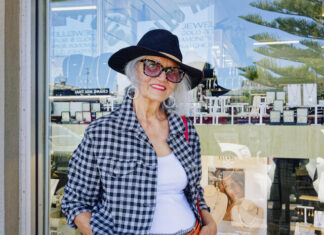Erin Pearson
GEELONG has a “really bad” culture of drinking and violence around nightclubs compared to popular precincts overseas, according to a researcher.
But Deakin University’s Dr Peter Miller said his international findings ruled out extra police as a “silver bullet” to cleaning up central Geelong after dark.
Dr Miller visited the USA, Asia and England to investigate how their authorities tackled drug, alcohol and violence in nightclub precincts. He will use his findings in a five-year study on issues surrounding Geelong’s nightlife.
“Geelong’s drinking and violence culture is really bad,” Dr Miller said after returning from overseas.
“Geelong is doing well in terms of a collaborative model and regulating nightclubs but still has very high levels of violence compared to other countries – the USA closes most bars at 2am and Canada has less violence culturally.”
Dr Miller doubted extra police would solve problems of alcohol and violence around nightclubs in central Geelong.
“We call for an increase in police all the time and there’s a really good argument for that but we need to be realistic about the expectations of increasing the number of police,” he said.
“They can do a lot of good and would be great to see a lot more but we can’t expect the police to solve all the community’s problems.”
Dr Miller said England recently employed 36,000 extra without “major impact”.
“Liverpool has virtually everything Geelong’s got in terms of radio networks, accord-type bodies, CCTV and some ID scanners but the big difference is at the same time they did all this in 2006 the number of police almost doubled,” he said.
“They’ve at least managed to stop that trend but they haven’t seen a massive turn around – the alcohol and violence problems have simply levelled off.”
Dr Miller said his research suggested cracking down on sales of packaged liquor would be effective in combating violence around central Geelong.
Countries with fewer problems often had state-owned liquor outlets, he said.
“This often means better prices because in the end the government gets to determine the retail price of the liquor but it means a lot more health intervention is available at point of sale.
“It helps address the health costs and gather data on what percentage of liquor consumption comes out of packaged liquor sales.
“Geelong still has a long way to go with these sorts of things but we’re seeing change.”
Our grog violence worst, says boffin
Digital Edition
Subscribe
Get an all ACCESS PASS to the News and your Digital Edition with an online subscription
Holiday shopping
With the school holidays in full swing, Independent photographer Ivan Kemp was at The Terrace in Ocean Grove on Tuesday 20 January to see...








